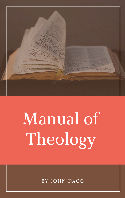Wycliffe’s Bible (1382) [Wycliffe]
Summary of Wycliffe’s Bible 1382
Wycliffe’s Bible is the name now given to a group of Bible translations into Middle English that were made under the direction of, or at the instigation of, John Wycliffe. They appeared over a period from approximately 1382 to 1395. These Bible translations were the chief inspiration and chief cause of the Lollard movement, a pre-Reformation movement that rejected many of the distinctive teachings of the Roman Catholic Church. In the early Middle Ages, most Western Christian people encountered the Bible only in the form of oral versions of scriptures, verses and homilies in Latin (other sources were mystery plays, usually conducted in the vernacular, and popular iconography). Though relatively few people could read at this time, Wycliffe’s idea was to translate the Bible into the vernacular, saying “it helpeth Christian men to study the Gospel in that tongue in which they know best Christ’s sentence”.
Long thought to be the work of Wycliffe himself, it is now generally believed that the Wycliffite translations were the work of several hands. Nicholas of Hereford is known to have translated a part of the text; John Purvey and perhaps John Trevisa are names that have been mentioned as possible authors. The translators worked from the Vulgate, the Latin Bible that was the standard Biblical text of Western Christianity, and the text conforms fully with Catholic teaching. They included in the testaments those works which would later be called deuterocanonical by most Protestants, along with 3 Esdras which is now called 2 Esdras and Paul’s epistle to the Laodiceans.
Although unauthorized, the work was popular. Wycliffite Bible texts are the most common manuscript literature in Middle English. Over 250 manuscripts of the Wycliffite Bible survive.

Dagg Manual of Theology is a theology work in 2 volumes by J.L. Dagg a Reformed Southern Baptist. It is an extensive, very ample presentation of doctrines.
This is an extensive Bible Systematic Theology (Bible Doctrines book) from a conservative point of view.
Read/Download: now with pdf download link. 50,000 views on this page with download link
The association between Wycliffe’s Bible and Lollardy caused the kingdom of England and the established Catholic Church in England to undertake a drastic campaign to suppress it. In the early years of the 15th century, Henry IV (De haeretico comburendo), Archbishop Thomas Arundel, and Henry Knighton published criticism and enacted some of the severest religious censorship laws in Europe at that time. Even twenty years after Wycliffe’s death, at the Oxford Convocation of 1408, it was solemnly voted that no new translation of the Bible should be made without prior approval. However, as the text translated in the various versions of the Wycliffe Bible was the Latin Vulgate, and as it contained no heterodox readings, there was in practice no way by which the ecclesiastical authorities could distinguish the banned version; and consequently many Catholic commentators of the 15th and 16th centuries (such as Thomas More) took these manuscript English bibles to represent an anonymous earlier orthodox translation. Consequently, manuscripts of the Wycliffe Bible, which when inscribed with a date always purport to precede 1409, the date of the ban, circulated freely and were widely used by clergy and laity. (wikipedia.org)
More Modules from English Bibles Category
- Young’s Literal Translation YLT
- Wycliffe’s Bible 1382
- Wilbur Pickering’s New Testament WPNT
- Wesley’s New Testament 1755 [Wesley]
- Webster Bible Translation [Webster]
- Voice in the Wilderness Bible [VW]
- Updated King James Version [UKJV]
- Tyndale Bible of 1534 [Tyndale]
- The Timeless King James Update (TKJU) New Testament
- The Open English Bible [OEBus]

pc68 Confidence or Worry Dealing with Stress We examine a situation of stress and problem in life, and how Satan uses them against us and God, and how God uses problems for our good.
TOPICS: There is no fear in love | Lack of energy, you want to move on | The persecution for being a Christian | The concern for the disease | Do not worry about money | Marital Stress, Family.
Read the Tract: pc68 Confidence or Worry Dealing with Stress.
MySwordmodules is a website dedicate to the MySword Bible Program for Androird devices. We host MySword Modules.

Buy me a piece of Mexican SweetBread!
Everybody likes sweet bread. In Mexico, it is a tradition to eat this sweetbread with coffee or hot chocolate before going to bed. But alas, while you are also enjoying the delicious stuff from my websites, I am out of money. A gift of any amount will at least let us buy a piece of sweetbread.
Please donate something for the upkeep of this website. I am bearing the burden of the monthly upkeep for years now, and I only have a few donations PER YEAR out of all of my websites, and that only like $25 dollars each time.
